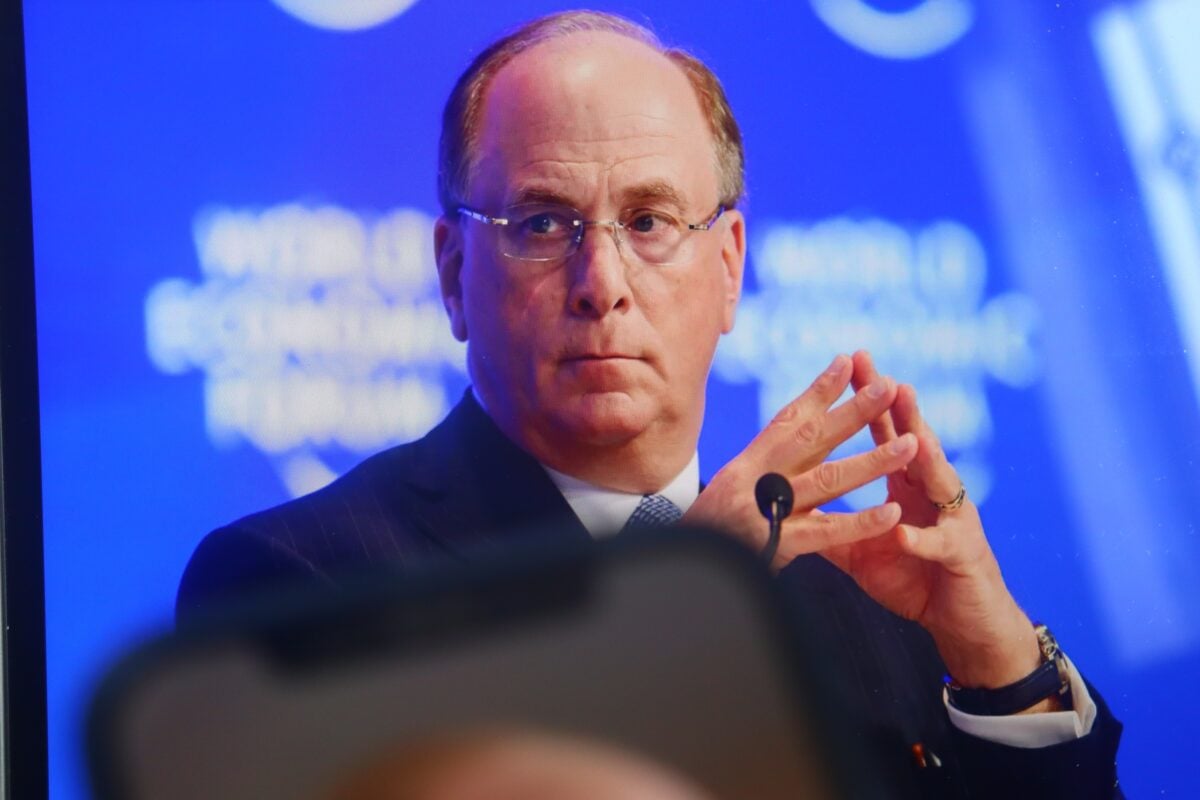TLDR
- BlackRock CEO Larry Fink now views Bitcoin as “digital gold” and a legitimate alternative asset.
- Fink previously criticized Bitcoin in 2017, calling it an “index of money laundering.”
- BlackRock became one of the first companies to launch a Bitcoin ETF, which quickly gained significant assets.
- Fink advises investors to exercise caution and avoid overexposing their portfolios to Bitcoin.
- Bitcoin’s decentralized nature and limited supply make it attractive during times of financial instability.
BlackRock CEO Larry Fink has revised his stance on Bitcoin, calling it a “digital gold.” Fink now views the cryptocurrency as a legitimate alternative asset. His change in opinion comes after years of skepticism toward digital currencies. This shift in perspective is drawing attention in the financial industry.
Fink’s Change of Heart on Bitcoin
In 2017, BlackRock CEO Larry Fink criticized Bitcoin, calling it an “index of money laundering.” At that time, many financial executives shared his skepticism. They believed cryptocurrencies would eventually fade out due to their association with illicit activities. However, Fink’s view has undergone significant changes as Bitcoin continues to gain traction in global markets.
Fink acknowledged that he had to reconsider his previous assumptions about Bitcoin. “Bitcoin offers an alternative asset for investors seeking to protect their wealth,” he explained. As Bitcoin remains resilient through market fluctuations, it has become a tool for investors seeking a store of value.
Despite his shift in perspective, Fink remains cautious. He advises investors not to overexpose their portfolios to Bitcoin. “It is not a bad asset,” Fink noted, “but I don’t believe it should be a large component of your portfolio.”
BlackRock’s Strategic Move into Bitcoin
Under Fink’s leadership, BlackRock became one of the first companies to launch a Bitcoin Exchange-Traded Fund (ETF). The U.S. Securities and Exchange Commission approved the ETF in 2024. It allows investors to gain exposure to Bitcoin without the need to purchase or store the cryptocurrency directly.
The Bitcoin ETF quickly became the largest in the world. Within months of its launch, it reached over $93.9 billion in assets under management. This success highlights the growing mainstream acceptance of Bitcoin in traditional finance.
Fink’s comments on Bitcoin are significant, as BlackRock manages trillions in assets. The company’s endorsement of Bitcoin signals a broader acceptance of digital assets in the financial world. Other large institutions, like Fidelity, have followed suit by incorporating Bitcoin into their investment products.
BTC’s Role in the Global Economy
Fink’s remarks come as global financial instability increases interest in Bitcoin. Rising inflation, political instability, and high national debt are all contributing factors to the economic downturn. These challenges make traditional investments less attractive to many investors, prompting them to explore alternatives such as Bitcoin.
BlackRock’s CEO walked back 2017 comments on Bitcoin in a recent interview and said he now sees it as a legitimate alternative asset.
Read more: https://t.co/JImQ2Yxk3K
— Decrypt (@DecryptMedia) October 13, 2025
Bitcoin’s decentralized nature appeals to investors seeking protection from government-controlled monetary systems. Unlike fiat currencies, Bitcoin’s supply is fixed at 21 million coins. This scarcity is a key feature that makes Bitcoin attractive to those concerned about inflation and currency devaluation.
Fink’s words reflect a growing trend in which institutional and retail investors are turning to Bitcoin. Nearly half of the demand for BlackRock’s Bitcoin ETF comes from individual investors. This shift is helping Bitcoin bridge the gap between traditional and modern financial systems.
In conclusion, BlackRock CEO Larry Fink has acknowledged Bitcoin’s legitimacy as an alternative asset. His recognition of Bitcoin as “digital gold” marks a significant change in his outlook on cryptocurrency. This move aligns BlackRock with the broader trend of institutional adoption of digital assets.







